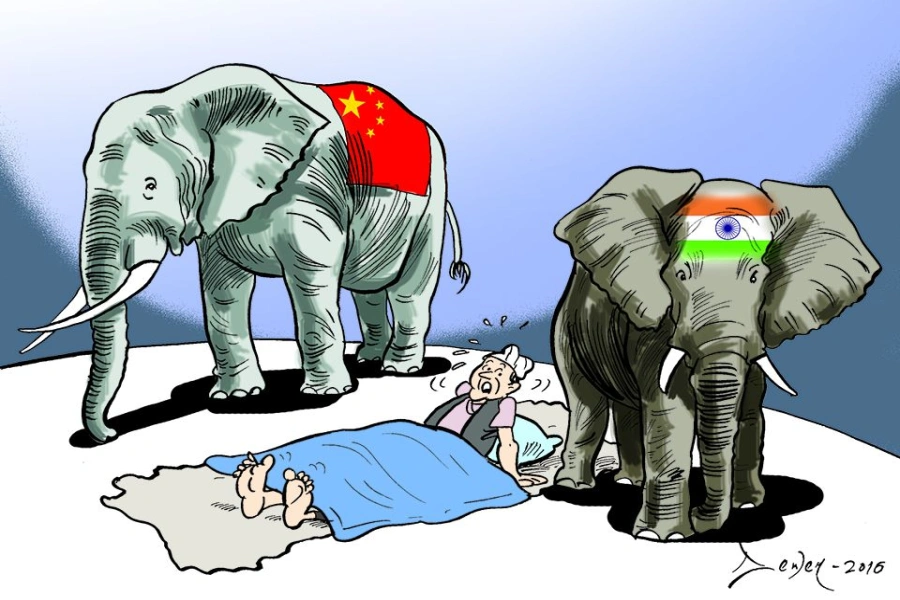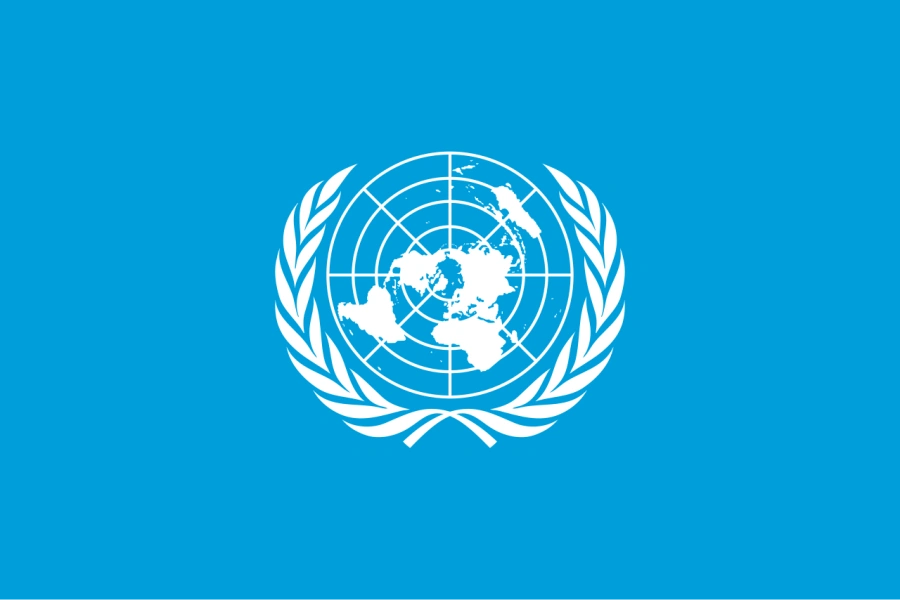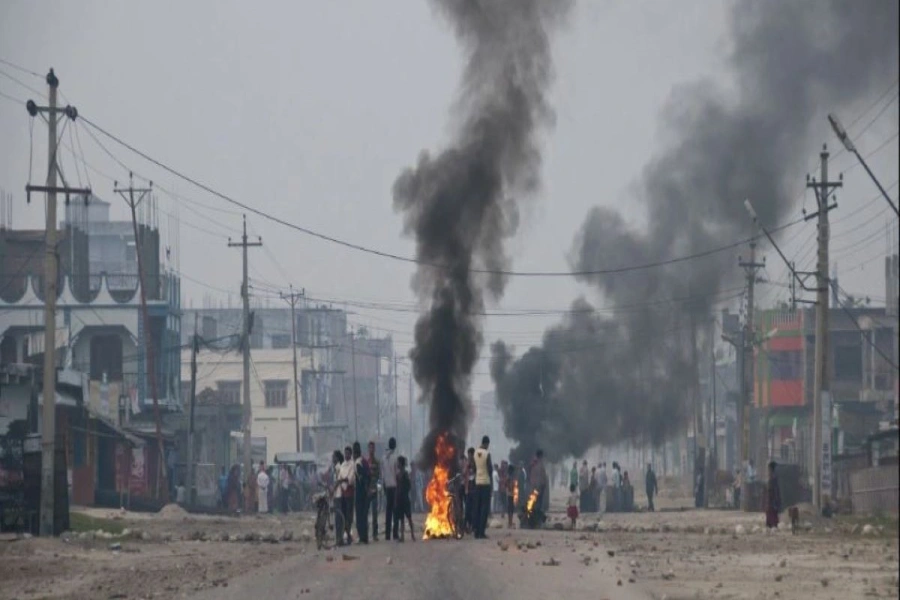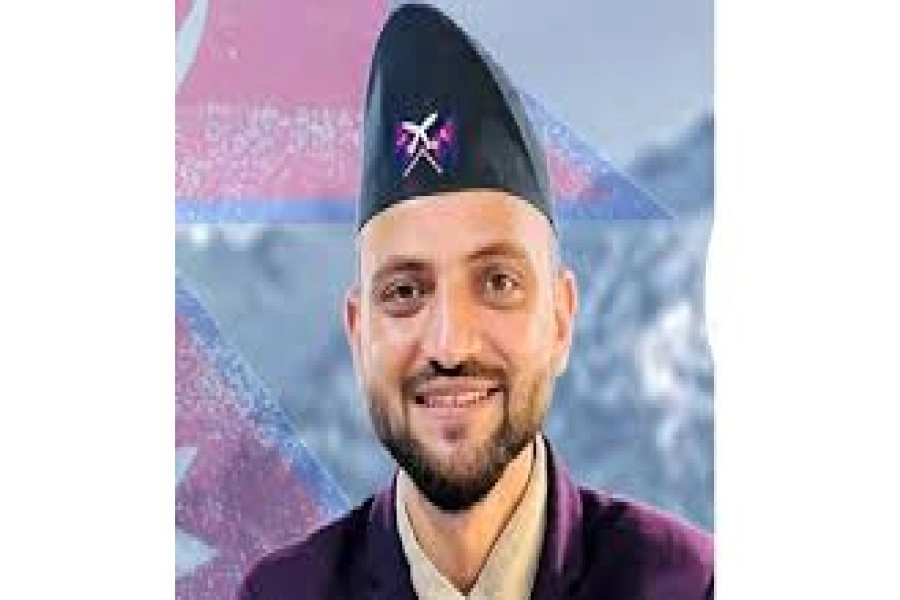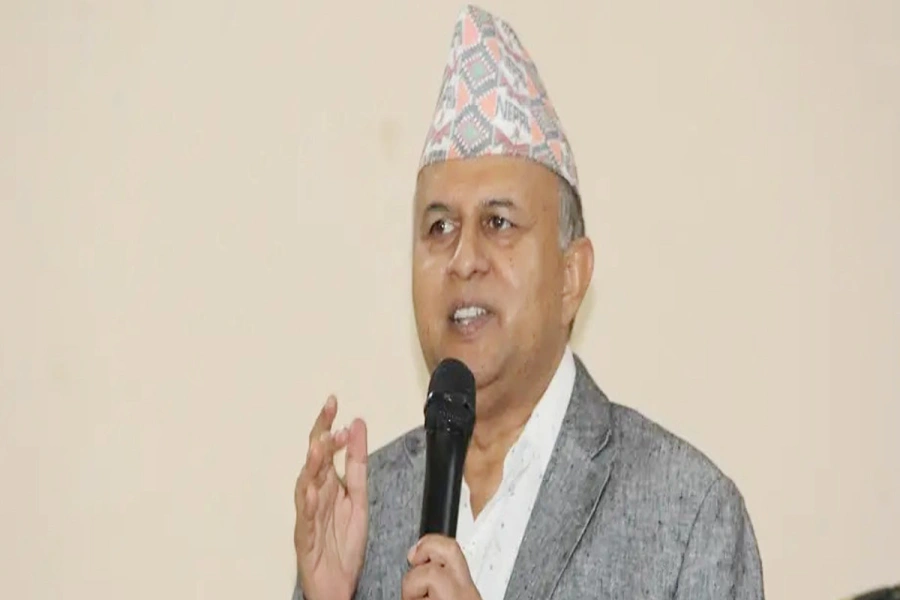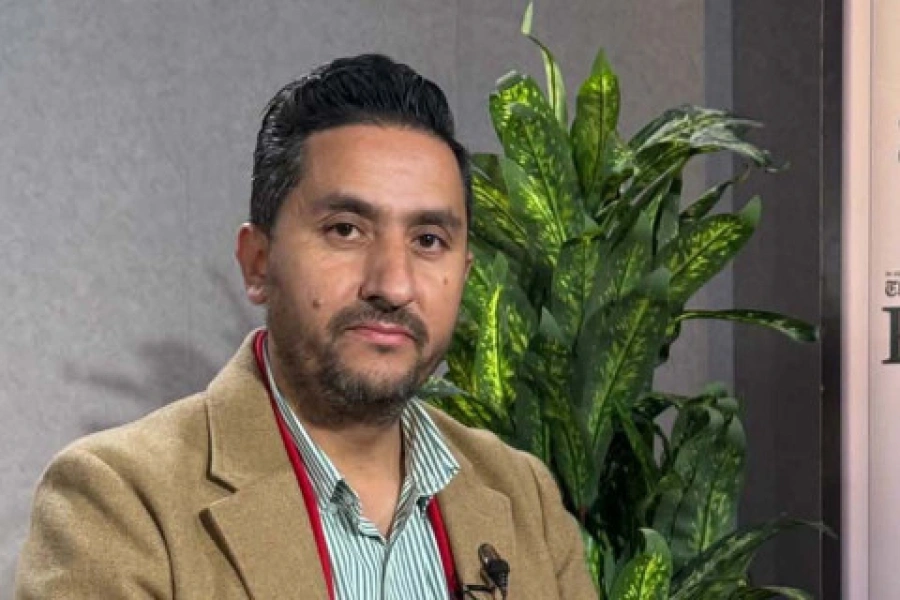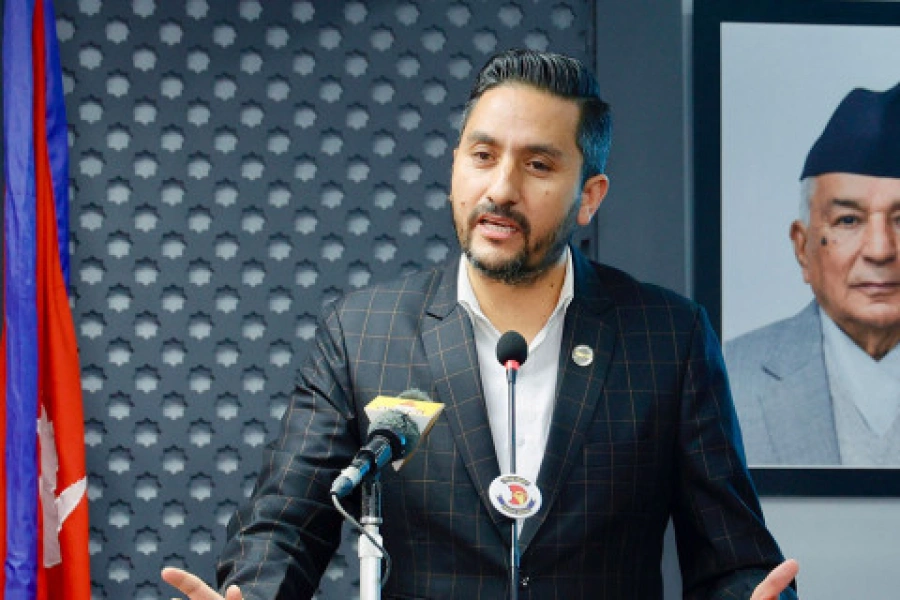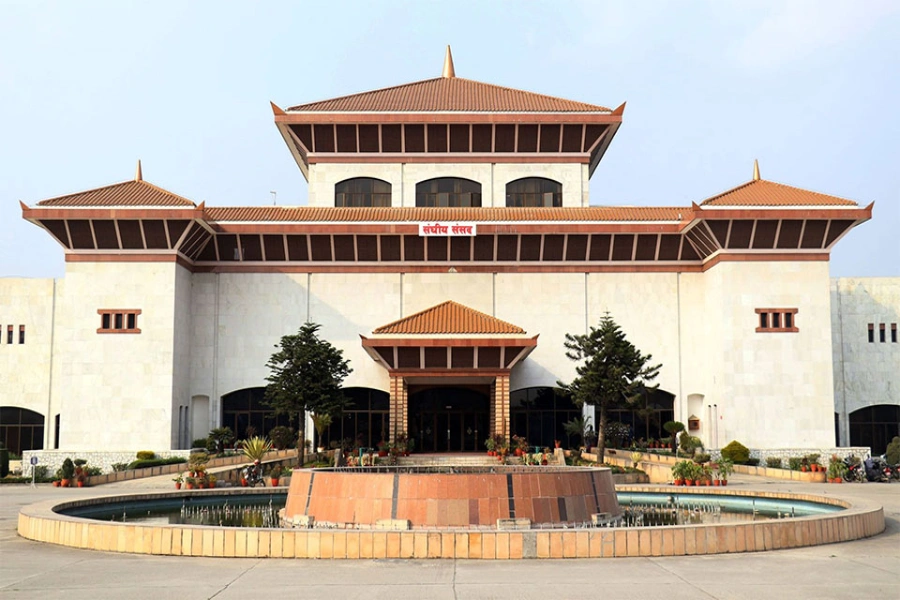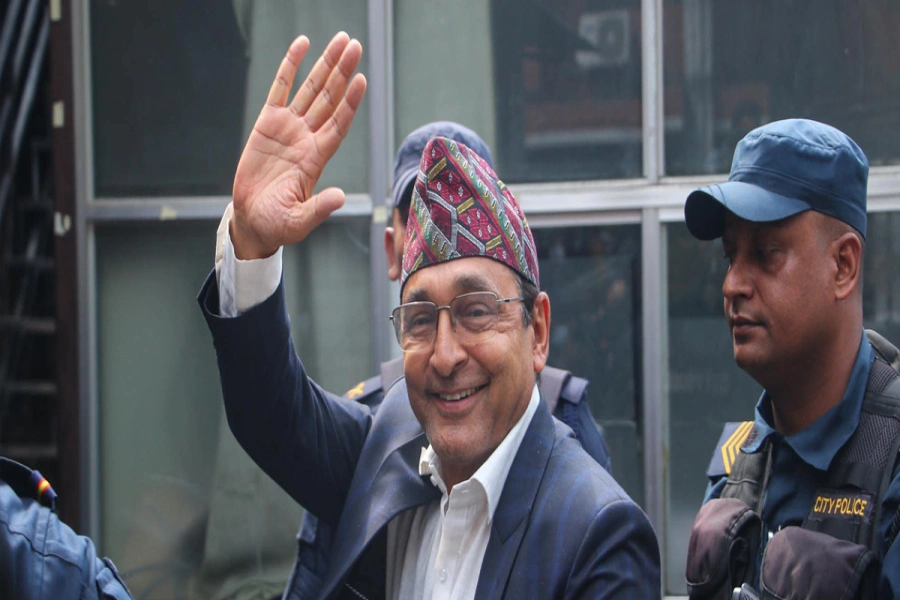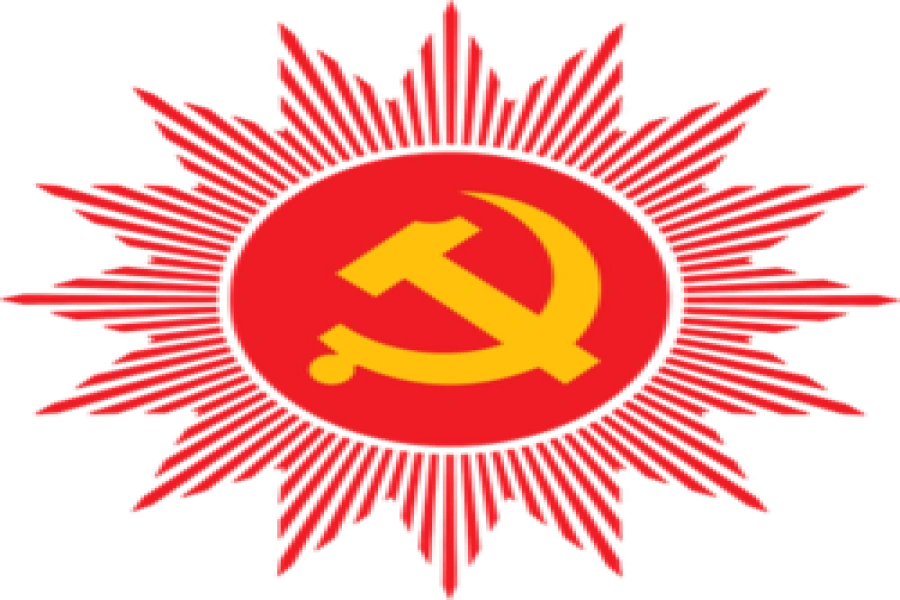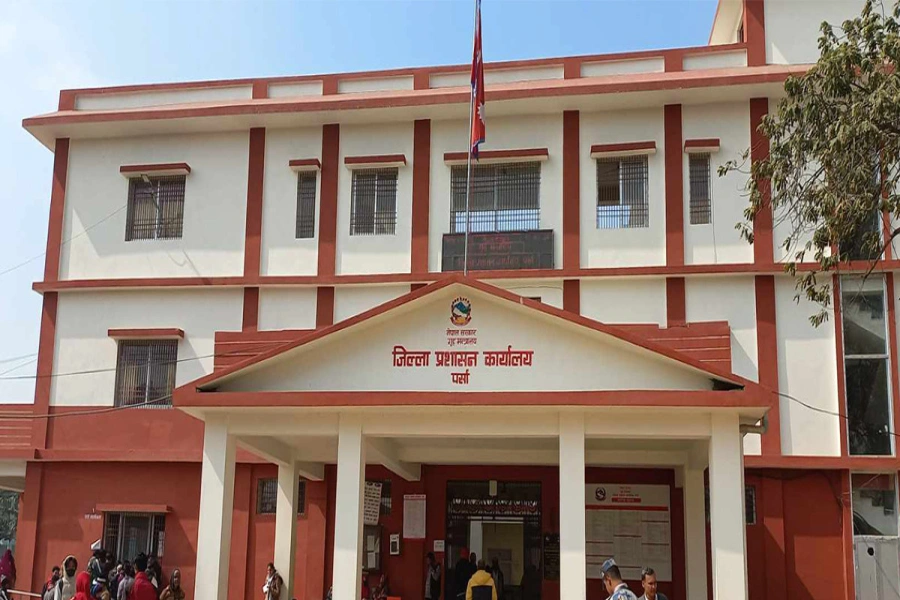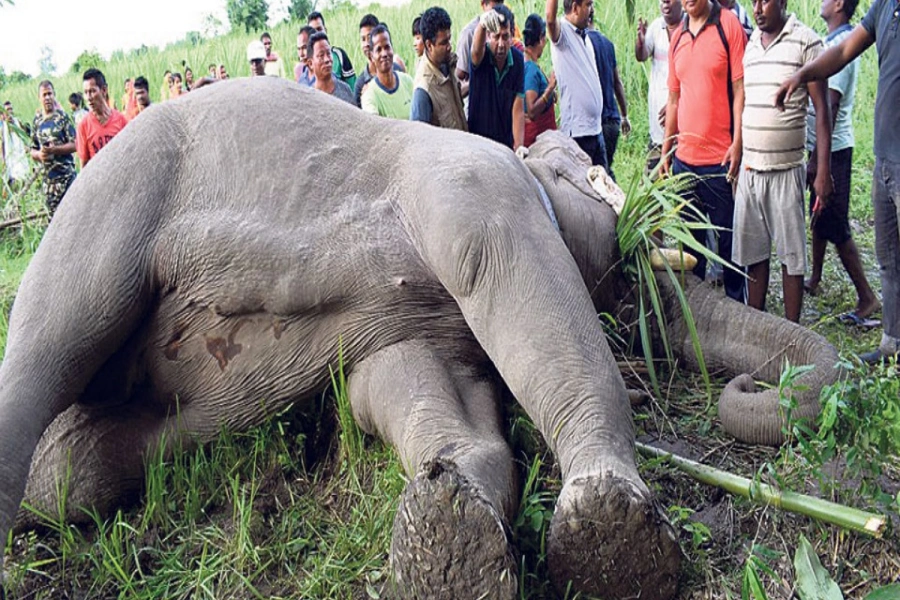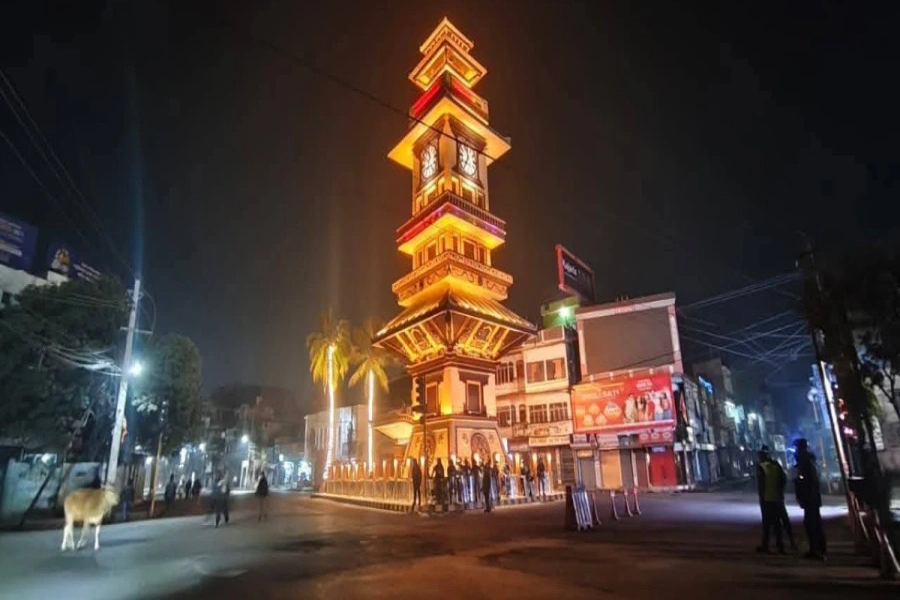KATHMANDU, Nov 27: Expressing concern over the efforts being made by the rival faction within the ruling Nepal Communist Party (NCP) to oust prime minister through the decisions of the party’s Secretariat and Standing Committee, a group of civil society leaders have reminded that no head of the government can be ousted without the decision of the ruling party’s parliamentary party.
In a Civic Appeal issued jointly by 13 civil society leaders, they have asked political parties and their leadership to seriously consider the fact that the political process envisaged by the constitution can only be followed through the constitutional provisions in place. “Under the constitutional and parliamentary practice, changing the government is the task of the Parliament and, within it, the Parliamentary Party. Thus, the service of a sitting prime minister is a parliamentary matter, and no Head of Government can be ousted without the decision of the ruling party’s Parliamentary Party,” read the appeal.
While urging CPN leadership to be mindful of the weakening democratic values emanating from the political instability to which they have contributed, the civil society leaders also appealed to the government as well as leaders of the ruling party who have served long and at the forefront of various movements and led political parties to rise above personal ambition and concentrate on the good of the country and people.
Former Prez Bhandari congratulates Oli three days after his vic...
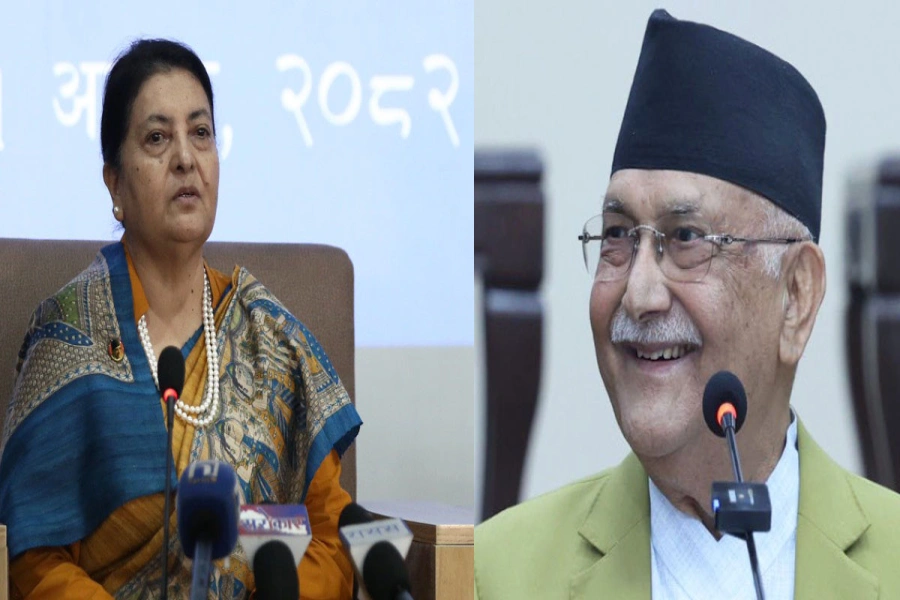
Full text of the appeal:
Civic Appeal
Call on Government, Political Parties and Leaders to Exhibit Responsibility
26 November 2020, Thursday (11Mangsir 2077)
The undersigned wish to register the following concerns relating to the ongoing disturbance in the political sphere:
- Political Stability: Economic advance and social progress in any country is dependent upon social and constitutional constancy, whose precondition is political stability. The Constitution of Nepal, made possible through seven decades of effort by the citizenry and drafted by an elected Constituent Assembly, internalises substantively the need for political and constitutional stability. Unique provisions such as prohibition of no-confidence-vote till two years after a prime minister takes office, and efforts to unseat a prime minister requiring the name of the candidate to take his/her place, are the result of Nepal’s parliamentary experience. The results of the local, provincial and national level elections under the new Constitution have also confirmed the public’s yearning for political stability.
- Check and Balance: Replacement of one government executive by another is part of normal democratic practice. Under the principle of ‘check and balance’, a sovereign Parliament directs, restricts and changes governmental leadership as required. Under constitutional and parliamentary practice, changing the government is task of the Parliament and, within it, the Parliamentary Party. Thus, the service of a sitting prime minister is a parliamentary matter, and no Head of Government can be ousted without decision of the ruling party’s Parliamentary Party. We ask the political parties and their leadership to seriously consider the fact that the political process envisaged by the Constitution can only be followed through the constitutional provisions in place. At a time when political instability has begun to shake the public’s trust in the political system itself, and carries the possibility of weakening a Constitution that is as yet in its initial stage of implementation, we call on the ruling Communist Party of Nepal, the main opposition Nepali Congress and all other parties represented in Parliament to recognise the dangerous trend and move to protect the Constitution.
- Responsibility of Ruling Party Leadership: Not only has the past year of internal conflict within the ruling CPN shaken the political stability contemplated by the Constitution, the personal ambition of the top-level leaders of a party that was given mandate to rule, the fight over positions and accusations hurtled at each other,have cumulatively created a sense of hopelessness among the public at large. It is obvious that the CPN leadership has not been mindful of the weakening of democratic values emanating from the political instability to which they have contributed. Against this backdrop, we appeal to the Government as well as leaders of the ruling party who have served long and at the forefront of various movements and led political parties, including serving as prime minister, to rise above personal ambition and concentrate on the good of the country and people.
- Geopolitical Concerns: The energy of the ruling party and main opposition party are being exhausted in managing their internal conflict at a time when country should be concentrating on developing national capacity in various sectors. With the escalation of geopolitical tensions within South Asia and the Asian continent as a whole, a politically unstable Nepal will not be able to adequately address evolving challenges. We ask the Government of Nepal to developed a balanced foreign policy on the basis of the principles of non-alignment, to develop relationships of trust with neighbouring countries as well as the democratic forces around the world, and to strive to achieve overarching agreement among political parties on a cohesive foreign policy.
- GenerationalLeadership Change: Internal democracy is important for political parties in order to move with the times and remain linked to the citizenry. The Constitution of Nepal provides guidance on the democratic functioning of political parties, insisting among other things on financial transparency and elected office-bearers. Under the Constitution, the legitimate way to change leadership of a party is through the general convention. Many countries have provisions that successfully restrict the term of Heads of Government to two terms. While this provision exists in Nepal only in the case of the President, there is no doubt that the spirit of the Constitution as well as the public’s desire is for political parties to continuously evolve new leadership. Even though there is no requirement restricting terms of office for party nor government leadership, we welcome the fact that the subject of generational change in both has now come up for discussion. All political parties including the ruling CPN and main opposition NC should now develop a specific roadmap to achieve generational transformation in leadership. Having committed themselves publicly to strengthen internal democracy, both the ruling party and main opposition must hold their general conventions as announced, and in a way that will generate a new crop of leaders.
- Governance and Dividing of the Spoils: Concerned citizens have been raising their voice on the many weaknesses of the present Government in governance. Many matters relating to implementation of the Constitution have been waylaid due to the ongoing concentration of power in the federal level, as well as the ruling party leadership’s focus on dividing the spoils of power rather than preparing for the announced general convention. As a result, dozens of parliamentary bills are pending, and the constitutional commissions have not been able to start work due to delay in appointment of commissioners. Among many other things, the public expects the Government to show results on numerous areas, including implementation of federalism, enforcing inclusion, generating employment, and improving the capacity of the civil service. It has been 15 long years since the Comprehensive Peace Accord was signed, and the neglect of transitional justice has ensured that victims of conflict continue to suffer grave injustice. The delay has also greatly harmed the country’s international credibility. Cases of corruption have not been effectively investigated and action taken against the guilty. The Government should keep in mind that key issues of the day as defined by the Constitution, including ensuring the right to proportionality and inclusion, and giving due importance to the vital role of local-level and provincial governments. Overall, the weaknesses of in governance have also led to the shrinking of public space nationally. Overall, the divide-the-spoils mentality among the political class will not lead society to achieve the goals it has set for itself, and hence the Government, the opposition and the leadership of the parties are required to understand their role and responsibilities. The points we have made in this statement regarding the Government and ruling party should rightfully have been raised by the main opposition, hence we ask the Nepali Congress to be mindful of its constitutional responsibility and accountability to the people.
- The Covid-19 Pandemic: The Government has not been able to provide effective leadership for tackling the Covid-19 pandemic and thus protect the public. This is the primary national challenge of the moment, and yet the citizens’ fundamental right to health has been neglected. Success against the pandemic requires broad-based national unity, ceaseless watchdogging of the Government, and the public’s alertness to its own responsibilities. At a time when the entire world is in the grips of the Covid-19 pandemic, we call upon all political parties to abandon opportunism of every kind, and unite to tackle the challenges the country is confronted with. We also appeal to the general public and social organisations to continuously watchdog the efforts to defeat the Covid-19 virus.
Signatories:
- Dr. Arjun Karki
- BipinAdhikari
- Bishnu Prasad Baral
- DambarChemjong
- DevendraBiswakarma
- Kanak Mani Dixit
- Kapil Shrestha
- Kripa Ram Tharu
- Mohan Singh Thebe
- Rabindra Karna
- RameshoreKhanal
- Dr. RenuAdhikari
- SushilPyakurel



